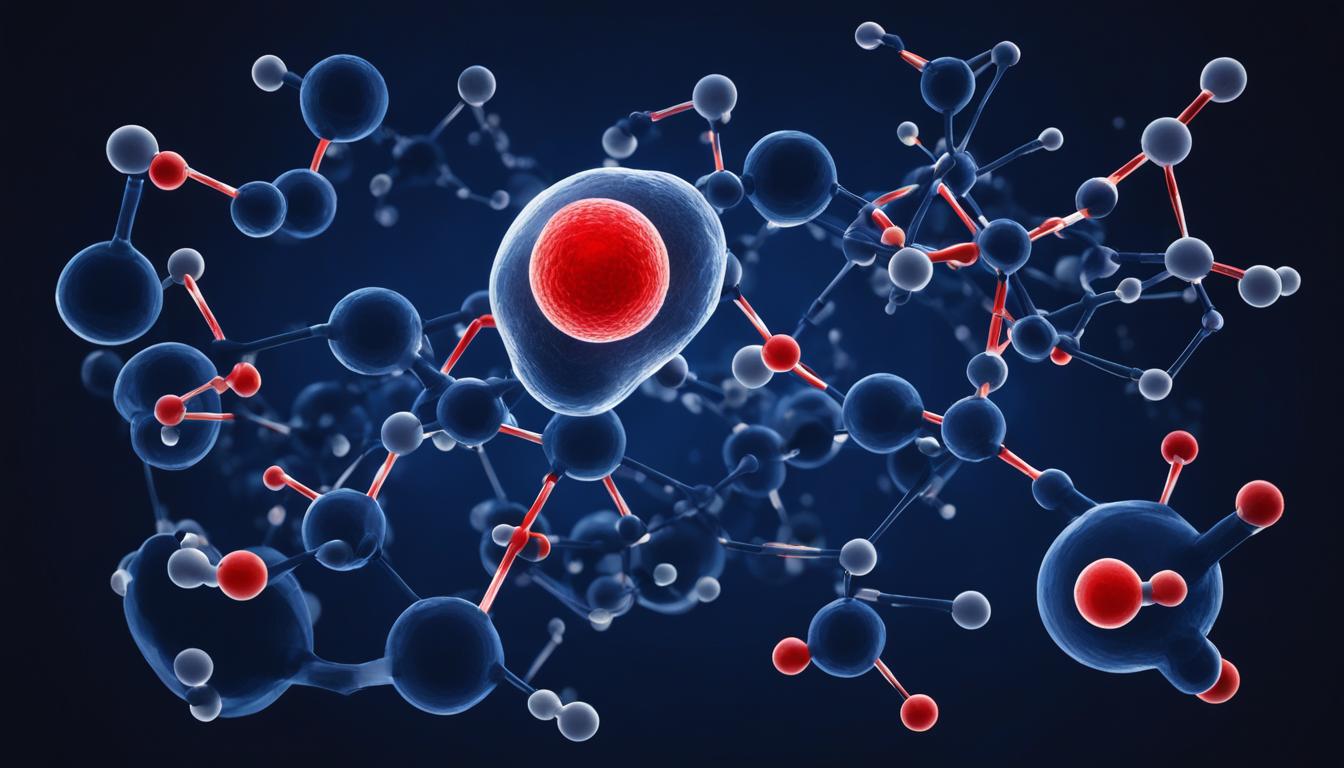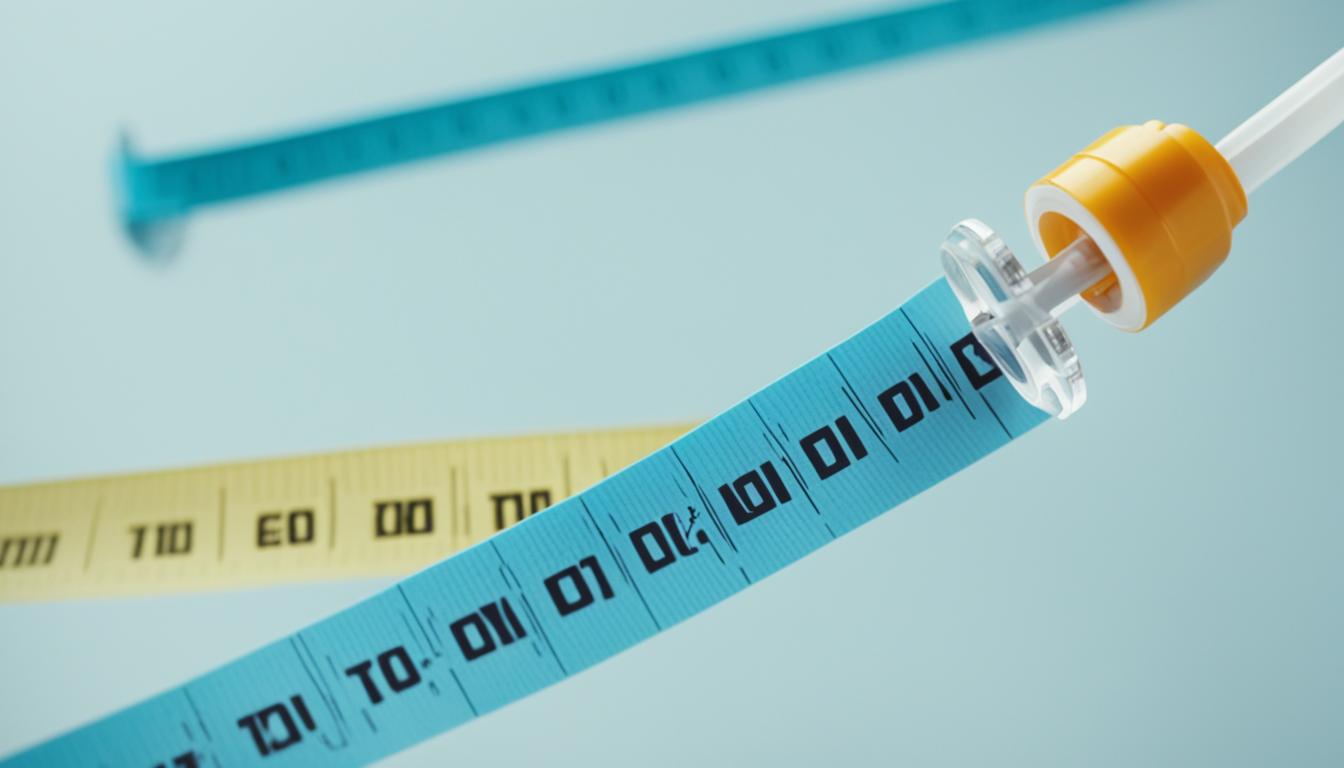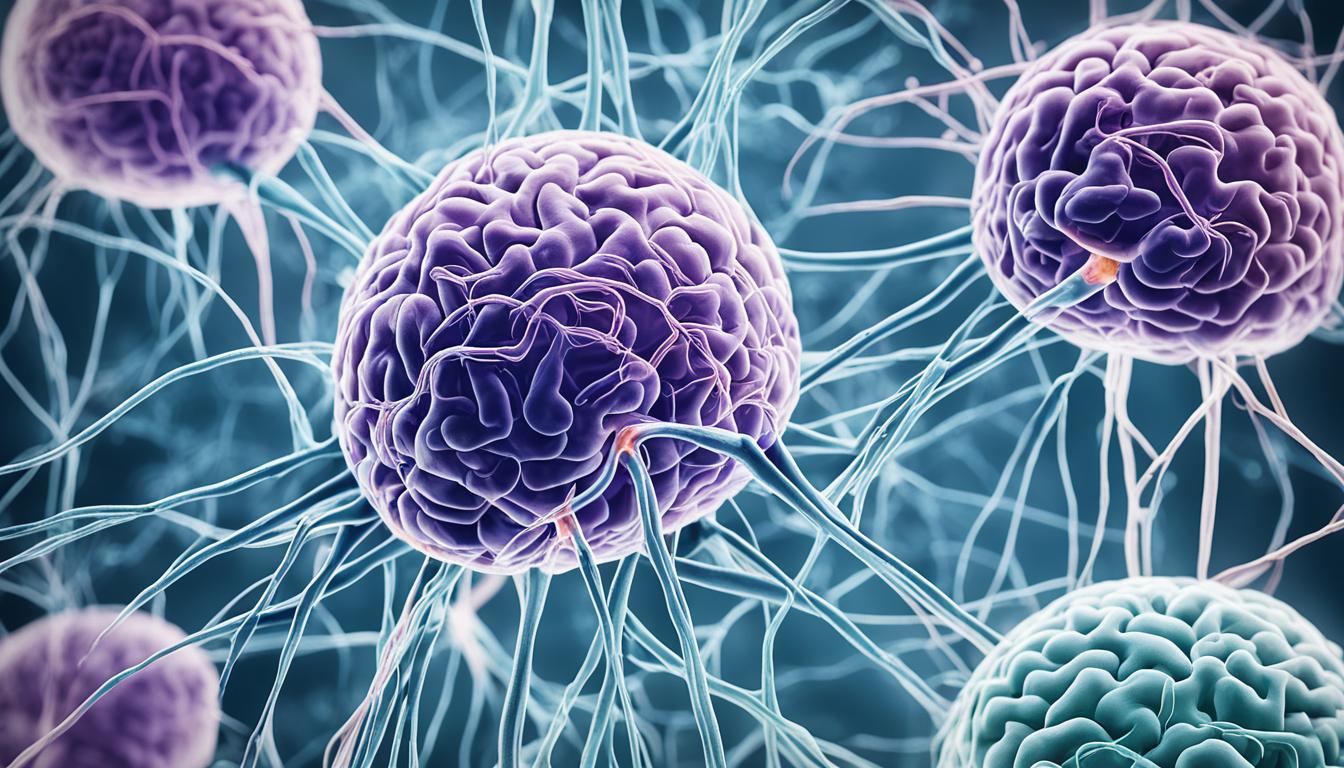Welcome to our comprehensive guide on L-Arginine and its potential benefits for prostate health. In this article, we will explore the role of L-Arginine as an amino acid that may support prostate health. Whether you are looking for information on the benefits of L-Arginine for the prostate or interested in understanding how it may help with prostate issues, we have got you covered.
L-Arginine is a naturally produced amino acid that can also be obtained from dietary sources or taken as a supplement. Many people are curious about its potential benefits for the prostate. While some studies suggest that L-Arginine may have a role in treating or preventing prostate issues such as enlargement and inflammation, more research is needed to confirm its effectiveness specifically for prostate health.
Before starting any new supplements or treatments for prostate health, it is essential to consult with a healthcare professional. They can provide personalized advice and guidance based on your individual needs and medical history.
Key Takeaways
- L-Arginine is an amino acid that has been studied for its potential benefits in supporting prostate health.
- While some studies suggest a positive link between L-Arginine and prostate health, more research is needed to determine its effectiveness.
- Consult with a healthcare professional before starting any new supplements or treatments for prostate health.
- Maintaining a healthy lifestyle and regular screenings are also important for overall prostate health.
- L-Arginine supplementation should not replace conventional prostate cancer treatments and should be used under medical supervision.
The Link Between L-Arginine and Prostate Cancer Prevention
While L-Arginine has shown promise in some areas of cancer research, there is not enough evidence to support its use in preventing or treating prostate cancer specifically. Some studies have explored the potential role of L-Arginine in prostate cancer prevention, but more research is needed to determine its effectiveness and safety.
L-Arginine is an amino acid that is naturally produced by the body and can also be obtained from dietary sources or taken as a supplement. It has been studied for its potential benefits in supporting prostate health, but its specific role in prostate cancer prevention is still under investigation.
In certain areas of cancer research, such as enhancing anti-tumor responses of T lymphocytes and modulating arginine metabolism in cancer immunosurveillance, L-Arginine has shown promise. However, it is important to note that these studies are not specifically focused on prostate cancer.
Further research is needed to determine the effectiveness and safety of L-Arginine in preventing and treating prostate cancer. It is advisable to consult with a healthcare professional before taking L-Arginine supplements or using any alternative treatments for prostate cancer.
L-Arginine and Prostate Enlargement
Prostate enlargement, also known as benign prostatic hyperplasia (BPH), is a common condition that affects aging men. It can lead to bothersome symptoms such as frequent urination, weak urine flow, and the feeling of incomplete emptying of the bladder.
While research suggests that L-Arginine may have a positive effect on prostate function and reduce symptoms associated with BPH, further studies are needed to confirm these findings. L-Arginine is an amino acid that plays a role in vasodilation, the widening of blood vessels. This property could potentially contribute to its benefits in improving urinary flow and reducing prostate enlargement. However, the exact mechanisms of action are not fully understood.
Consulting with a healthcare professional is crucial for appropriate diagnosis and treatment of BPH. They can provide personalized advice based on individual circumstances. It’s important to note that L-Arginine should not be relied upon as a standalone treatment for prostate enlargement and should be used under medical supervision.
Research and clinical trials are ongoing to further investigate the potential benefits of L-Arginine in managing prostate enlargement and related symptoms. Until more evidence is available, it’s essential to explore a comprehensive approach to prostate health, including regular screenings, lifestyle adjustments, and appropriate medical care.
| Treatment | Benefits |
|---|---|
| L-Arginine | Potential improvement in prostate function and reduction in BPH symptoms |
| Other treatments for BPH | Relief from urinary symptoms associated with prostate enlargement |
While L-Arginine shows promise in supporting prostate health, it’s important to remember that individual responses may vary. Consulting with a healthcare professional will ensure the most appropriate and effective course of action for managing prostate enlargement and addressing related concerns.
L-Arginine and Prostate Inflammation
Inflammation plays a crucial role in various prostate conditions, including prostatitis. Studies have examined the potential anti-inflammatory effects of L-Arginine and its metabolites on the prostate. However, the current evidence is limited, and further research is needed to determine the effectiveness of L-Arginine specifically in reducing inflammation in the prostate.
Prostatitis is a condition characterized by inflammation of the prostate gland, often causing uncomfortable symptoms such as pelvic pain, urinary difficulties, and sexual dysfunction. It can have various causes, including bacterial infection and non-bacterial factors like chronic pelvic pain syndrome.
Some studies suggest that L-Arginine may have anti-inflammatory properties that could potentially alleviate symptoms associated with prostate inflammation. The exact mechanisms of how L-Arginine may impact inflammation in the prostate are not fully understood and require further investigation.
While L-Arginine holds promise as a potential therapeutic option for managing prostate inflammation, it is vital to consult with a healthcare professional for an accurate diagnosis and appropriate treatment. Prostate inflammation can have underlying causes that require targeted interventions, and a healthcare professional can provide personalized guidance based on individual circumstances.
L-Arginine and Prostate Inflammation: The Role of Nitric Oxide
L-Arginine is a precursor to nitric oxide, a molecule known for its vasodilatory and anti-inflammatory properties. Nitric oxide plays a vital role in regulating immune responses and inflammation throughout the body, including the prostate gland.
The conversion of L-Arginine to nitric oxide can potentially modulate inflammation in the prostate. Nitric oxide may exert anti-inflammatory effects by inhibiting the production of pro-inflammatory molecules and promoting the release of anti-inflammatory substances.
However, it is important to note that the specific effects of L-Arginine on prostate inflammation may vary depending on individual factors, such as the underlying cause, severity of inflammation, and overall health status.
| L-Arginine and Prostate Inflammation: Key Points |
|---|
| L-Arginine shows potential for reducing inflammation in the prostate. |
| Further research is needed to determine its effectiveness and safety. |
| Consult a healthcare professional for accurate diagnosis and appropriate treatment. |
Potential Side Effects and Interactions of L-Arginine
While L-Arginine is generally considered safe for most people when taken in appropriate doses, it is essential to be aware of the potential side effects and interactions that may occur. Before incorporating L-Arginine supplementation into your routine, it is recommended to consult with a healthcare professional, especially if you have any underlying medical conditions or are taking other medications.
Side Effects of L-Arginine
Some individuals may experience certain side effects when using L-Arginine. These side effects are usually mild and temporary. They may include:
- Nausea
- Abdominal pain
- Diarrhea
If you experience any persistent or severe side effects while using L-Arginine, it is important to discontinue use and seek medical advice.
Interactions with Medications
L-Arginine can potentially interact with certain medications, which may affect their effectiveness or lead to adverse reactions. It is crucial to discuss your current medications with a healthcare professional before starting L-Arginine supplementation. Some medications that may interact with L-Arginine include:
- Anticoagulants: L-Arginine may increase the risk of bleeding when used with anticoagulant medications.
- Blood pressure drugs: L-Arginine has the potential to lower blood pressure, so combining it with blood pressure-lowering medications may cause an excessive drop in blood pressure.
- Diabetes drugs: L-Arginine may affect blood sugar levels, so its use alongside diabetes medications may require adjustments in dosages.
Again, it is crucial to consult with a healthcare professional who can evaluate your specific situation and provide personalized advice.
“It is important to be aware of potential side effects and interactions when using L-Arginine. Always consult with a healthcare professional before starting any new supplements or treatments.”
Patient Case Study: Interactions with Anticoagulant Medication
John, a 60-year-old man, had been taking prescription anticoagulant medication to manage his blood clotting disorder. He decided to start using L-Arginine as a dietary supplement for its potential benefits in prostate health. However, upon discussing his medications with his healthcare professional, it was advised that combining L-Arginine with his anticoagulant medication could increase the risk of bleeding. To ensure his safety, John decided not to pursue L-Arginine supplementation.
| Medication | Potential Interaction with L-Arginine |
|---|---|
| Anticoagulants | Increased risk of bleeding |
| Blood pressure drugs | Possible excessive drop in blood pressure |
| Diabetes drugs | Effect on blood sugar levels, possible dosage adjustments |

It is crucial to prioritize your safety and well-being by seeking professional advice to understand the potential risks associated with L-Arginine supplementation and its interactions with medications.
Other Considerations for Prostate Health
Maintaining prostate health involves a holistic approach that encompasses various lifestyle factors. By adopting healthy habits and regular check-ups, you can support the optimal function of your prostate.
1. Regular Exercise
Engaging in regular physical activity plays a crucial role in promoting prostate health. Incorporating exercises that target the pelvic floor muscles, such as Kegel exercises, can help strengthen the muscles surrounding the prostate. Additionally, cardiovascular exercises like brisk walking, jogging, or swimming contribute to overall well-being.
2. Balanced Diet
A well-balanced diet can provide essential nutrients that support prostate health. Include foods rich in antioxidants, such as fruits, vegetables, and whole grains, to help combat oxidative stress. Additionally, include sources of lean protein, such as fish, poultry, and legumes, while reducing the consumption of processed meats and saturated fats.
3. Proper Hydration
Staying properly hydrated is essential for maintaining prostate health. Aim to drink an adequate amount of water each day to support urinary function and flush out toxins from the body.
4. Regular Screening and Check-ups
Regular screening, including prostate-specific antigen (PSA) testing, can help detect any abnormalities in the prostate at an early stage. It is important to discuss the frequency and necessity of screenings with your healthcare professional based on your age, risk factors, and family history. Routine check-ups with a healthcare professional also ensure proactive monitoring and prompt treatment of any prostate-related issues that may arise.

Consulting with a healthcare professional is vital for personalized advice on maintaining overall prostate health. They can provide guidance on the appropriate lifestyle modifications, screenings, and potential supplementation options to optimize your prostate health.
Conclusion
In conclusion, L-Arginine has shown potential benefits for prostate health, although further research is needed to fully understand its effectiveness and safety. While some studies suggest a link between L-Arginine and prostate cancer prevention, more evidence is required to establish its specific role in treating or preventing this disease. Additionally, L-Arginine may have some positive effects on prostate enlargement and inflammation, but the mechanisms behind these effects are not yet fully understood.
It is crucial to consult with a healthcare professional before starting any new supplements or treatments for prostate health. They can provide personalized advice and guide you on the best path to support your prostate health. However, it’s important to note that maintaining a healthy lifestyle, regular screening, and seeking appropriate medical care are vital components in promoting prostate health.
In summary, while L-Arginine holds promise in supporting prostate health, it is not a magic solution. It should be approached as part of a comprehensive approach that includes lifestyle modifications and medical care. By prioritizing overall well-being, staying informed, and working closely with healthcare professionals, men can take proactive steps towards maintaining a healthy prostate.
FAQ
Is L-Arginine good for prostate health?
L-Arginine has been studied for its potential benefits in supporting prostate health. However, more research is needed to determine its effectiveness specifically for prostate health. It is important to consult with a healthcare professional before starting any new supplements or treatments.
What are the benefits of L-Arginine for the prostate?
Some studies suggest that L-Arginine may have a role in treating or preventing prostate issues, such as prostate enlargement and inflammation. However, more research is needed to confirm these findings.
Can L-Arginine help with prostate cancer prevention?
While L-Arginine has shown promise in some areas of cancer research, there is not enough evidence to support its use in preventing or treating prostate cancer specifically. It should not replace conventional prostate cancer treatments and should be used under medical supervision.
Does L-Arginine help with prostate enlargement?
Some studies suggest that L-Arginine may have a positive effect on prostate function and reduce symptoms associated with prostate enlargement (BPH). However, more research is needed to confirm these findings. It is important to consult with a healthcare professional for appropriate diagnosis and treatment.
Can L-Arginine reduce prostate inflammation?
The evidence on L-Arginine’s effectiveness in reducing inflammation specifically in the prostate is limited. More research is needed to determine its effectiveness. Consult with a healthcare professional for appropriate diagnosis and treatment of prostate inflammation.
Are there any side effects or interactions associated with L-Arginine?
L-Arginine can cause side effects such as gastrointestinal issues. It can also interact with certain medications. Talk to a healthcare professional before starting L-Arginine supplementation, especially if you have underlying medical conditions or are taking medications.
What other considerations are important for prostate health?
Maintaining a healthy lifestyle, including regular exercise, a balanced diet, proper hydration, and regular screening, is important for overall prostate health. Consult with a healthcare professional for personalized advice on maintaining prostate health.
Is L-Arginine beneficial for the prostate?
While L-Arginine has been studied for its potential benefits in prostate health, more research is needed to determine its effectiveness and safety. Consult with a healthcare professional before starting any new supplements or treatments.
Can Dark Chocolate and L-Arginine Work Together for Prostate Health?
Yes, dark chocolate and L-arginine can work together for prostate health. Dark chocolate contains antioxidants that may help reduce inflammation in the prostate, while L-arginine is an amino acid that can improve blood flow. Together, they can promote overall prostate health.



